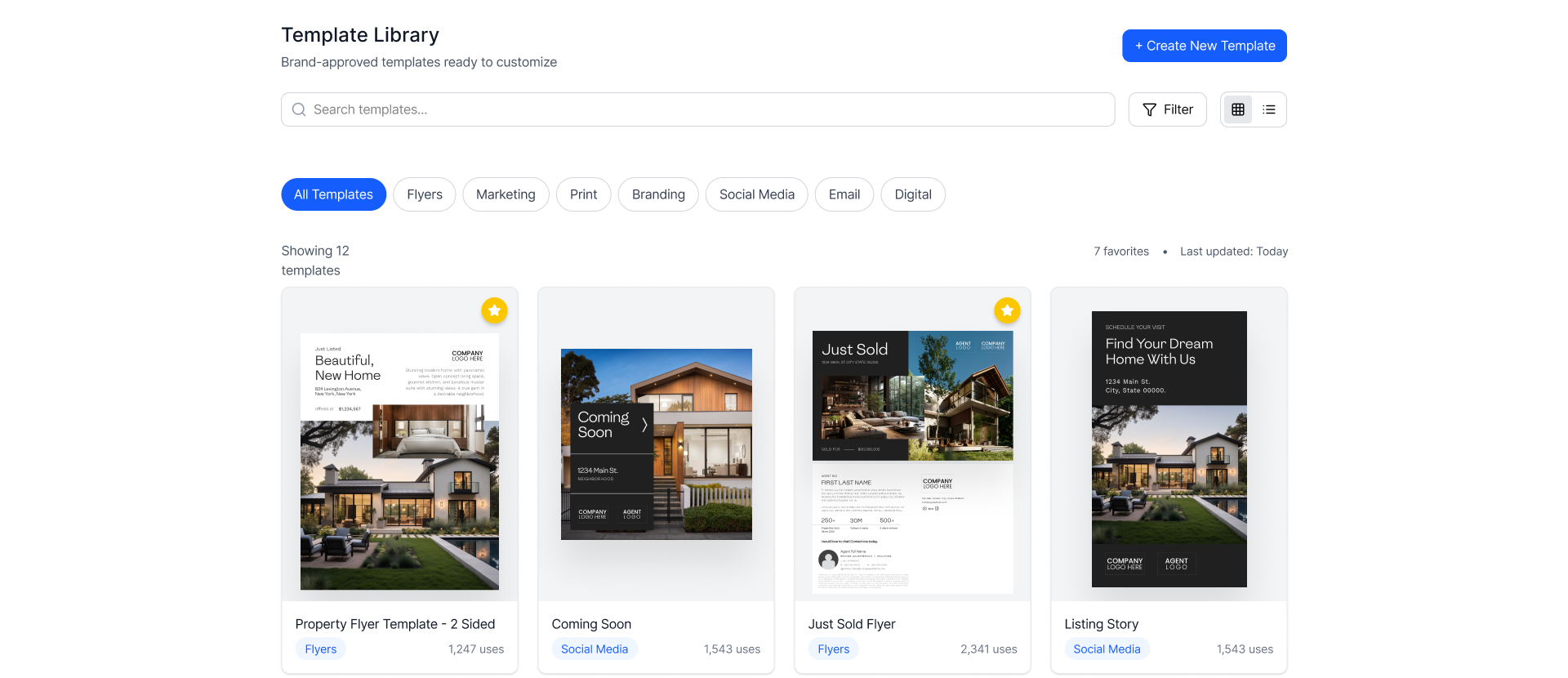A carefully orchestrated and executed real estate SEO strategy is how you get your website and business the visibility it needs to thrive. Here’s why. 43% of all home buyers in 2024 started their searches online, by typing in their search engines something like “homes for sale in Denver” or “homes under $300,000 in Milwaukee.” Understanding these behaviors and how the SEO game is changing and making way for Generative Engine Optimization (GEO) and Artificial Intelligence Optimization (AIO) to get a piece of the pie is crucial for staying competitive.
This article will give you the top 10 tips to improve your online presence and attract more qualified leads in 2025.
What Are the Benefits of SEO in Real Estate?

According to Backlinko, 27.6% of all clicks go to the #1 result in Google for any term, and they analyzed about 4 million of them. That percentage takes a dive as you go further below, but it’s important to note that almost 70% of all clicks go to the first five results on SERP. That’s the power of SEO for you, and it’s no different for real estate marketing or any other kind.
So, a strong SEO strategy helps real estate professionals show up where it matters most – on the first page of search results. Let’s break down how SEO translates into more leads, better brand credibility, and ultimately, more closings.
- Increased Visibility: We’ve seen that whenever buyers or sellers search for a real estate term, the sites that appear on the first page get all the attention. With effective SEO, yours can be there as well. The higher your site ranks, the more likely it is to be seen and clicked by users.
- More Qualified Leads: SEO brings people who are already searching for what your website offers. These people are actively looking to buy, sell, or get real estate guidance, so they are far more likely to convert into clients. Of course, we need to know how to differentiate between user search intents and tailor our content accordingly, but getting more qualified leads is a given.
- Lower Marketing Costs: No real estate SEO strategy can do wonders overnight. It requires time and effort upfront, but it pays off long term. Once your content ranks well, it can bring in consistent traffic without the ongoing costs of paid ads, making it one of the most cost-effective marketing channels for real estate professionals.
- Stronger Local Presence: Optimizing your Google Business Profile and using location-specific keywords is how you can increase your chances of ending up in “near me” searches on Google Maps and other relevant navigational maps. Prompt your clients to leave reviews and comments, since the more of those you’ve got under your belt, the better.
- Builds Trust and Authority: A site that offers helpful content and is ranked highly is the one that sends trust signals to search engines and users alike. With a clean and detailed site architecture packed with useful pages and blog posts, you can appeal to clients.
Let’s now dive straight into tips that will help you create a real estate SEO strategy that works.
1. Do a Keyword Research

Keywords are words that users type into search engines looking for results. Take the search “cheap houses for sale in Miami Florida”. That’s a keyword. In fact, one with an average of 320 monthly searches, as per Semrush. It’s a prime example of a long-tail keyword, which usually consists of 3-5 words that people use when they are more likely to convert, that is, make a purchase.
With long-tail keywords, the search volume is usually lower, but the competition is not that high. Of course, that doesn’t mean all long-tail keywords are like that. Take the search term “NYC apartments for rent”. We are looking at 18,100 average monthly searches, with a 64% ranking difficulty.
That’s why you must select appropriate keywords, build topical authority with your content, and use a careful strategy to have your pages rank for keywords, even though they might not be in the top 10 at first.
2. Build a Strong Internal Linking Strategy

Internal linking is a strategy of interconnecting pages of your website using hyperlinks to guide visitors through your site and show search engines how your content is structured and related. These hyperlinks are housed in the so-called anchor texts, which should serve as good pointers to what the linked page is about.
Why does this matter for real estate SEO? Because internal linking improves user experience, keeps visitors on your site longer, and boosts the visibility of key pages in search results. It also helps search engines crawl and index your site correctly.
Imagine you’ve written an article called “first-time homebuyer tips.” Inside that article, you can add internal links to related pages like “mortgage rates calculator” (if you have one about that) or “how to get pre-approved for a home loan”. By linking to these pages, you are helping readers delve deeper into relevant content, and the more they click on them and follow the links, the clearer the signal your site sends to Google about its relevancy.
3. Use the Real Estate Structured Data

Real estate structured data, aka schema markup, is a type of code added to your website that helps search engines understand the content on your pages. In the real estate industry, when you use structured data, your pages can appear in rich snippets on the SERP, which makes the listing more appealing.
It also allows your listings to appear in Google’s “Home Listings” carousel (the carousel that displays property listings within Google search results). It helps you rank for more queries related to renting or buying property.
4. Write Content, It Is Still Relevant

Content that engages and resonates with users is the content that ranks and converts. That’s the underlying logic, and it has everything to do with Google rewarding websites that offer valuable, informative, and user-centric content. In an industry such as real estate, where expertise and trust are key ingredients, great content is more important than ever.
Consider regularly publishing insightful blog posts about marketing, like MAXA’s 4 Ps of marketing, or neighborhood guides and homebuyer resources to build authority with the local crowds and attract natural backlinks.
Of course, content production requires planning and execution, which can be overwhelming. This is where MAXA’s AI Content Writer feature can be of great help. It lets you create property descriptions and email article content, saving you hours of work.
5. Build Niche Backlinks & Digital PR

When it comes to ranking factors, it’s not only the stellar content you need. In comes the backlinks. They are links from other websites that point to yours and are among the strongest ranking signals in Google’s ranking algorithm. The more quality sites link to your content, the more search engines view your website as credible and authoritative. It’s something along the lines of: if so many sites willingly link to this one, there must be something good on it.
On the other hand, we also have Digital PR as an approach in our arsenal. You can partner with local journalists or even real estate influencers to showcase your listings or community knowledge and leverage their clout in the digital space to boost the visibility of your page and its authority. Note that PR campaigns are relatively expensive, to say the least, so ensure you’ve exhausted all options for getting organic traffic.
6. Prioritize Mobile-First & Core Web Vitals

According to the findings by Statista, about 63% of all searches are done via mobile devices, which prompts realtors to make their websites perfectly optimized for those who like browsing on the go. For those users, a fully responsive site that is fast-loading and easy to navigate on smaller screens is essential.
In addition to mobile optimization, you should take Core Web Vitals (CWV) into account as well. These are a set of metrics Google uses to assess user experience. These include:
- LCP (Largest Contentful Paint): How fast your main content loads
- FID (First Input Delay): How quickly your site responds to the initial action
- CLS (Cumulative Layout Shift): How stable your page is as it loads
While Core Web Vitals aren’t a primary ranking factor, they do influence how long users stay on your site, that is, the entire user experience, and the UX is a major SEO ranking factor.
7. Nail Local SEO

Local SEO is optimizing your website to appear in search results for a particular area. Since buyers typically search by location, getting your site to appear for local queries like “homes for sale in Dallas.”
The first step is to get your Google Business Profile in order. You must include accurate and up-to-date contact info, service areas, photos, and client reviews. This boosts your chances of showing up in local map packs for searches like “real estate agent near me” and similar ones.
8. Optimize for AI and LLMs

AI and Large Language Models, or LLMs, are transforming the way people get information. Instead of typing keywords in search engines, users now ask full questions to ChatGPT or Google’s Gemini, like “How much down payment do I need for a house in Phoenix?” you’ll get your answer. In fact, it will elaborate and tell you about conventional loans, FHA loans, and more.
Luckily, these LLM models and chatbots link to their sources, which could be your page. That’s why your content must be clear and answer the user's search query immediately, using conversational language that mirrors how people naturally speak or type.
Also, you can add FAQs to key pages, include definitions for industry terms (e.g., escrow, pre-approval), and use headings that clearly reflect the questions your content answers.
Conclusion
The real estate business is growing more competitive by the minute, and if you’re not showing up on the first page of Google (or in an AI chatbot answer), you’re missing out on serious business. Sure, there are no guarantees that you’ll ever end up there, but without a real estate SEO strategy in place, it’s downright impossible.
Every step you take in that direction helps you stay ahead of the curve, and in this article, we talked about keyword research, backlinking strategy, (CWV), and other tips to get there. If all this sounds like a lot to manage, you can rely on MAXA’s solutions for help. Whether you need help creating great content, automating marketing tasks, or designing visuals that convert, MAXA’s got your back. Let us make your real estate brand the one everyone finds first in 2025.














